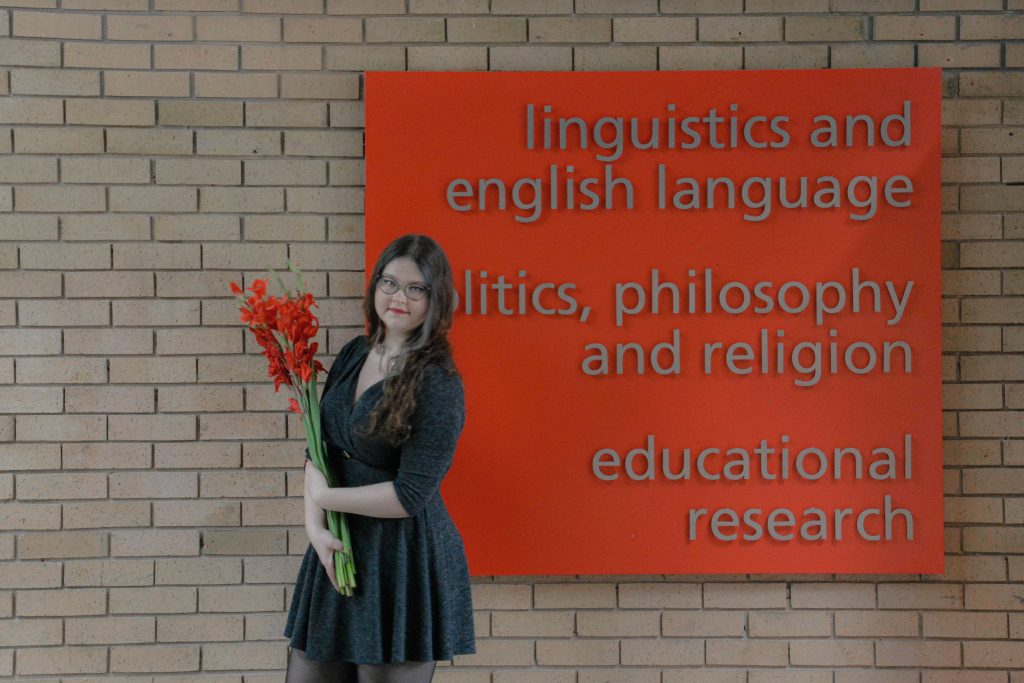I am very honoured to have received the Geoffrey Leech Outstanding MA Student Award for my MA in Language and Linguistics. This award traditionally goes to the MA student with the highest overall average.

I started my postgraduate journey in September 2019 after finishing my undergraduate degree at the University of Bamberg (Germany) in 2018 and working as a freelance translator and teacher for a year. I’ve always had an interest in the way language influences us both as individuals and as a society and have carried with me a fascination for experimentation and statistics. I first discovered corpus linguistics in the second year of my undergraduate degree, it soon after cemented itself as my primary research interest. I chose a corpus-based project for my undergraduate dissertation on pronouns in the English-lexifier lingua franca Bislama. From here I realised that much of the relevant methodological literature had been published by Lancaster academics – which cemented my decision to apply at Lancaster despite having to move abroad and face a number of Brexit-related administrative hurdles.
When I finally came to Lancaster for my MA, I felt welcome in the department from day one and I had the chance to attend/audit a wide variety of modules such as Cognitive Linguistics, Experimental Approaches to Language and Cognition, Forensic Linguistics, Stylistics, and Corpus Linguistics. The freedom of choice that Lancaster MA students in Language and Linguistics are given was another major motivation for studying at Lancaster and the flexible approach really benefited my personal learning experience. Another important element of my academic learning experience was being able to attend research groups – such as the Trinity group and UCREL talks –which focus on a wide variety of topics and allow you to come into contact with people that have all kinds of specialisms while getting the opportunity to develop your own research interests further.
I had, like all of us, not foreseen that my MA would move online in spring and all the challenges COVID-19 would bring about, but after the first phase of getting used to the situation I tried my best to see this as an opportunity to focus on my MA thesis titled “More than the sum of its parts: Collocation networks in the written section of the BNC2014 Baby+”. The aim of this thesis was to explore corpus-wide collocation networks and their structural and graph-theoretical properties using the BNC2014 Baby+ as the underlying dataset. I developed a method to create and display large MI2-score based weighted networks in order to analyse meta-level collocational patterns that emerge and performed a graph-theoretical analysis on them. The results obtained from this pilot study suggested that there is an underlying structure that all sections in the BNC2014 Baby+ share and the structure of the generated networks resembles other networks from a wide variety of phenomena such as power grids, social networks, and networks of brain neurons. The findings indicated that there are, however, text-type specific differences in terms of how connected different topic areas are and that certain words serve as hubs connecting topics with one another. The network displayed below is an example taken from the BNC Baby+ academic books section with a filter applied to only show the node “award”, its direct neighbours and their weighted interrelations.

I am very grateful for having had the opportunity to learn from and exchange ideas with so many amazing academics in the department over the course of my MA and I’m very excited to carry on researching collocation networks for my PhD here at Lancaster.
